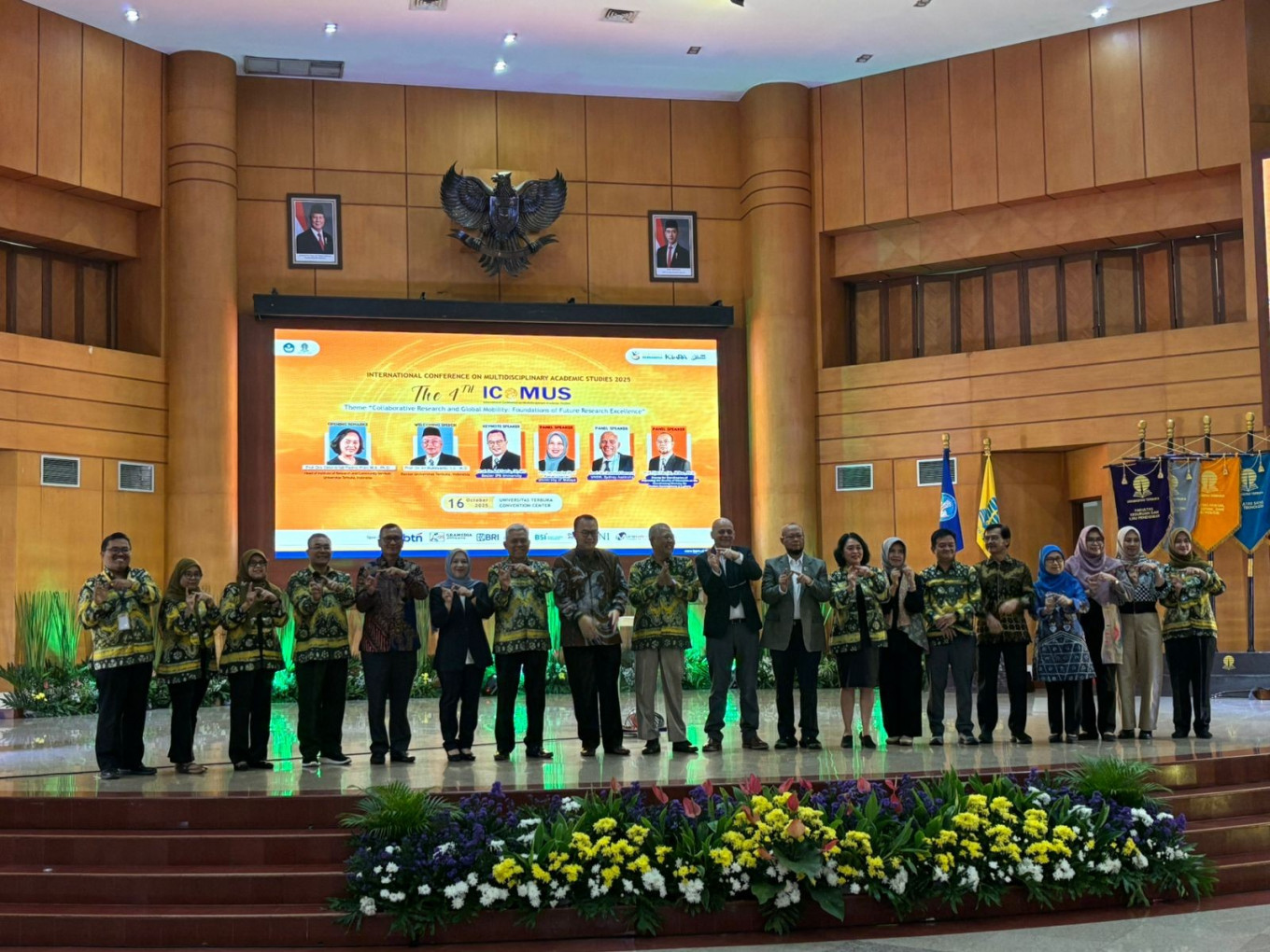Popular Reads
Top Results
Can't find what you're looking for?
View all search resultsPopular Reads
Top Results
Can't find what you're looking for?
View all search resultsUniversitas Terbuka highlights the need for collaboration through ICoMUS 2025
Change text size
Gift Premium Articles
to Anyone
U
niversitas Terbuka (UT) held the 4th International Conference on Multidisciplinary Academic Studies (ICoMUS 2025) on Thursday at the Universitas Terbuka Convention Center (UTCC) as a hybrid event.
Carrying the theme "Collaborative Research and Global Mobility: Foundations of Future Research Excellence," the event aimed to encourage research development at the global level. The annual event also served as a platform for researchers to disseminate findings from various fields of expertise and international experience, as well as to improve the quality of publications to meet the university's key performance indicators (KPIs).
ICoMUS 2025 also invited lecturers, students and the public to present their research findings as an effort to promote excellence in addressing various national issues, particularly in the field of scientific research.
Among its esteemed speakers was IPB University Rector Arif Satria as the keynote speaker and Coordinating Human Development and Culture Ministry Deputy for Coordination of Education Quality Improvement Ojat Darojat.
The complexity of the challenges facing the world today demands the involvement of various disciplines and cross-border collaboration. By working together, researchers can integrate diverse perspectives to provide more comprehensive solutions to complex problems.
Among the topics discussed was the need to address climate change, which requires approaches from environmental science, social science, economics and technology to find sustainable solutions. This synergy forms the foundation of a multidisciplinary approach to research.
The cross-border knowledge exchange and inter-university collaboration is aimed to accelerate scientific progress while increasing Indonesia's research competitiveness internationally. It is also hoped that ICoMUS 2025 can encourage the development of future research activities.
UT believes that research quality is measured not only by the depth of scientific analysis, but also by the extent to which it provides a tangible impact on society and the world. Therefore, UT views the importance of building an academic ecosystem that supports innovation, strengthens global networks and encourages researcher mobility.










